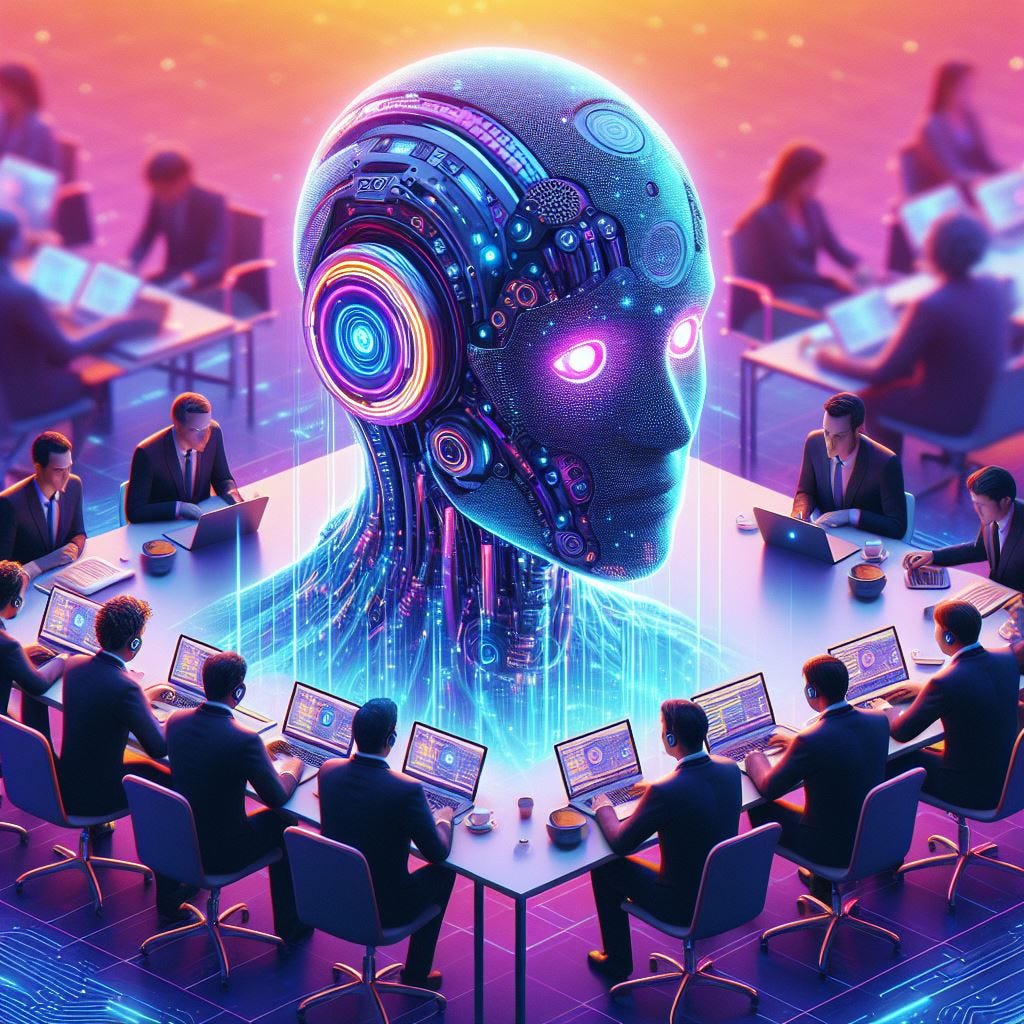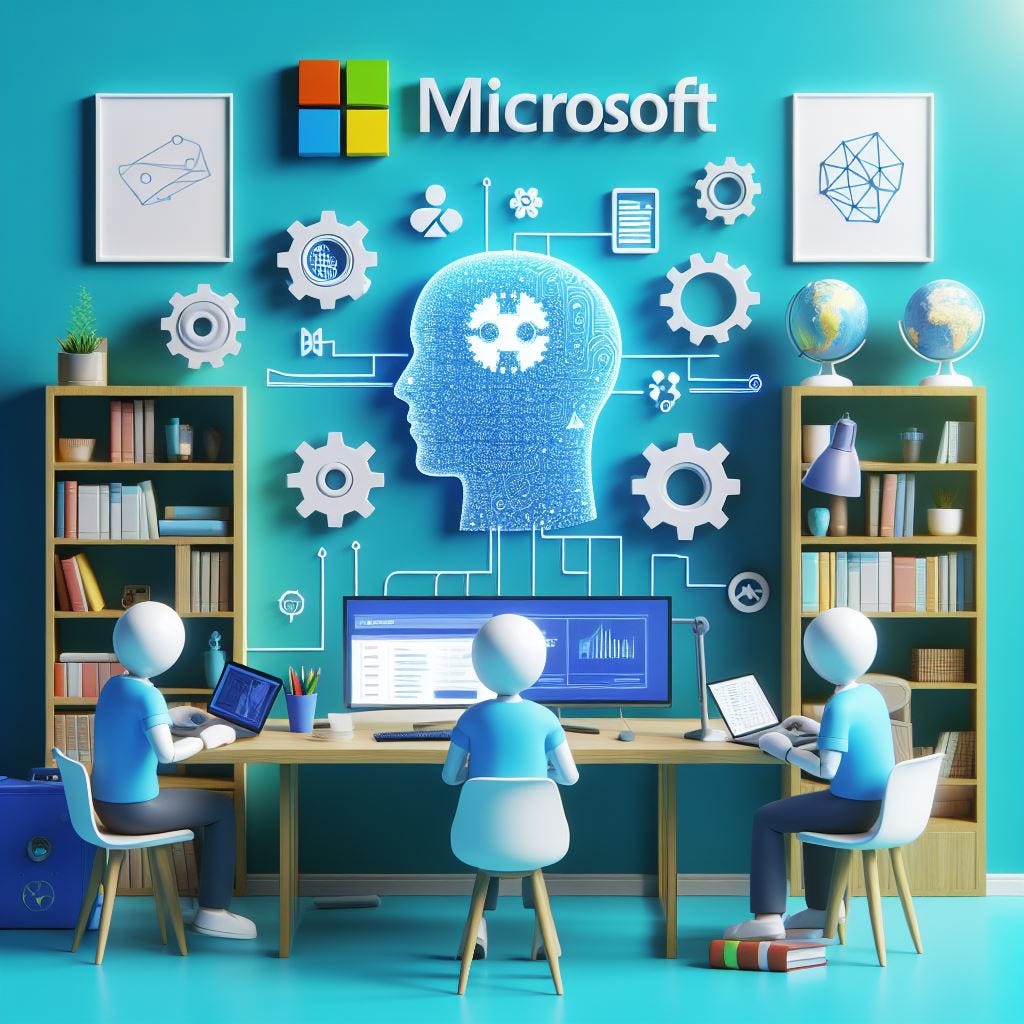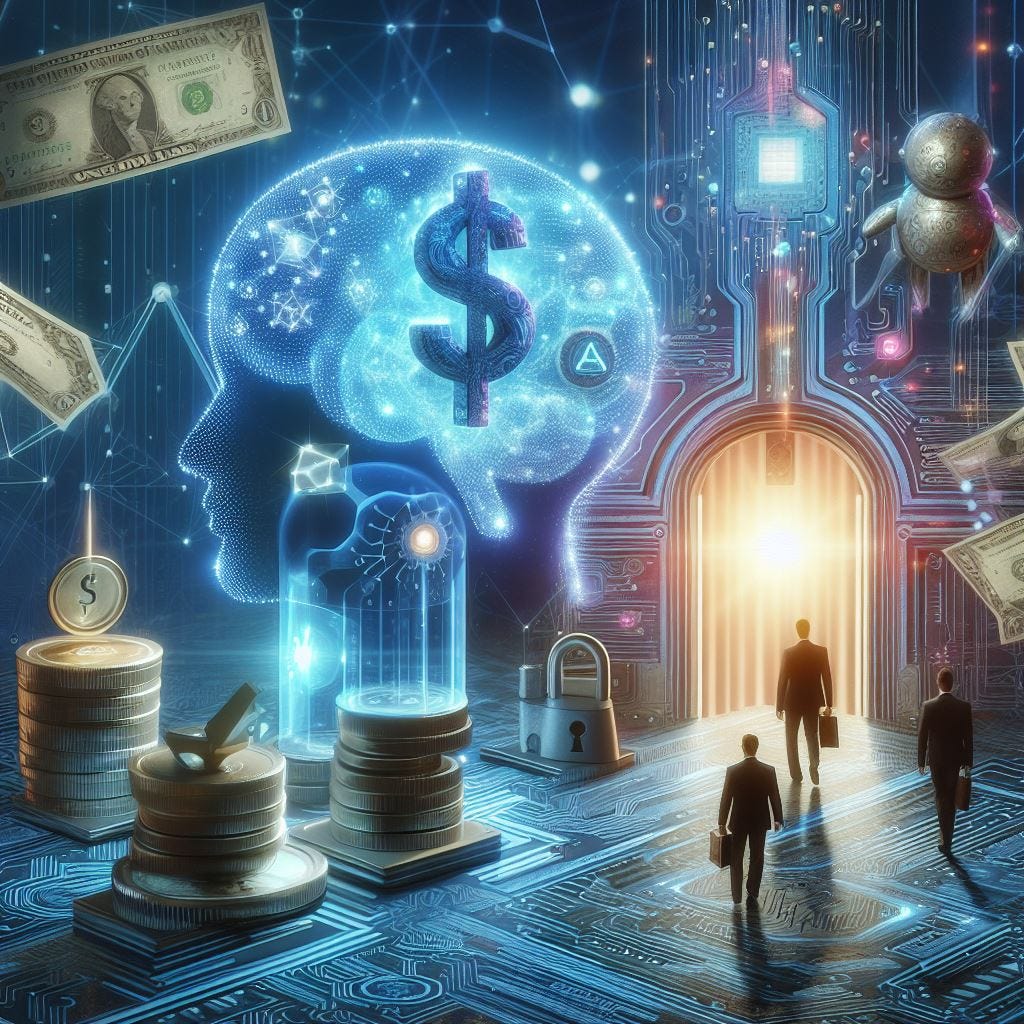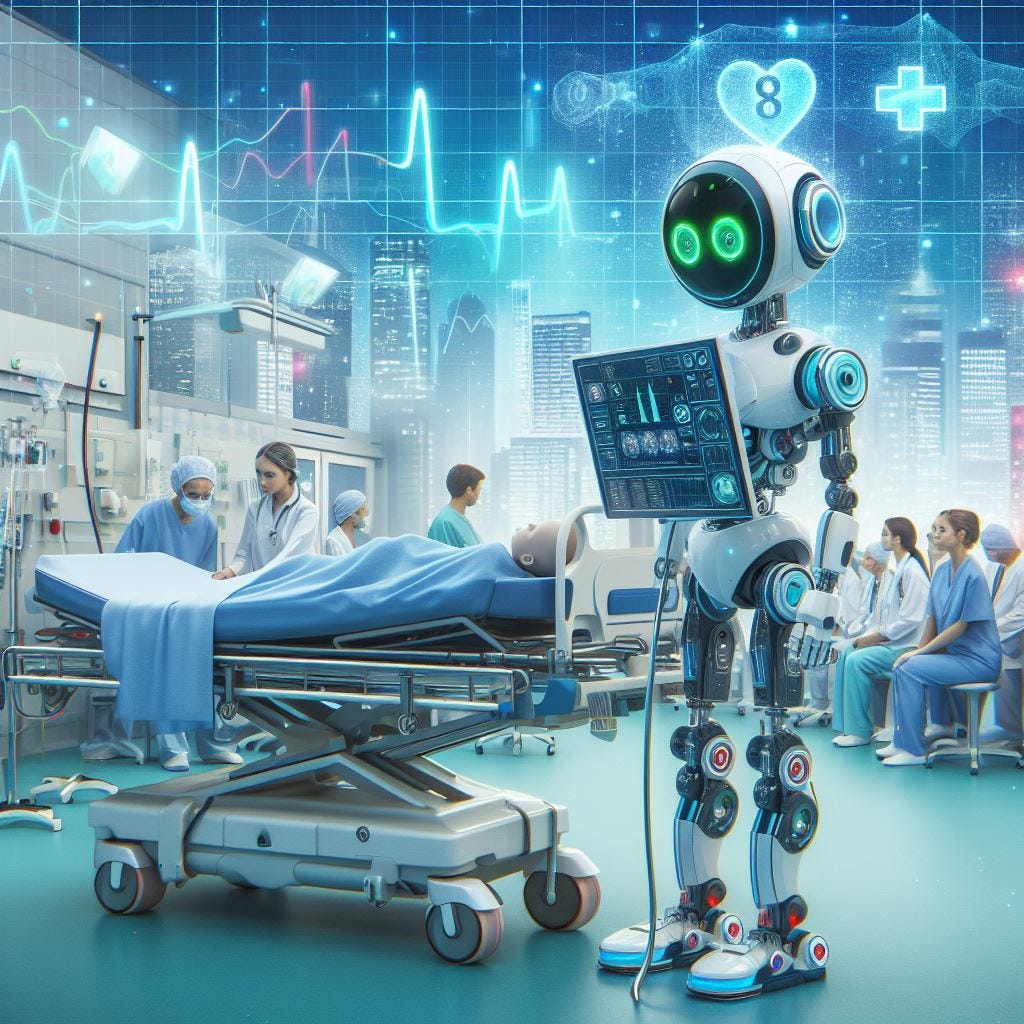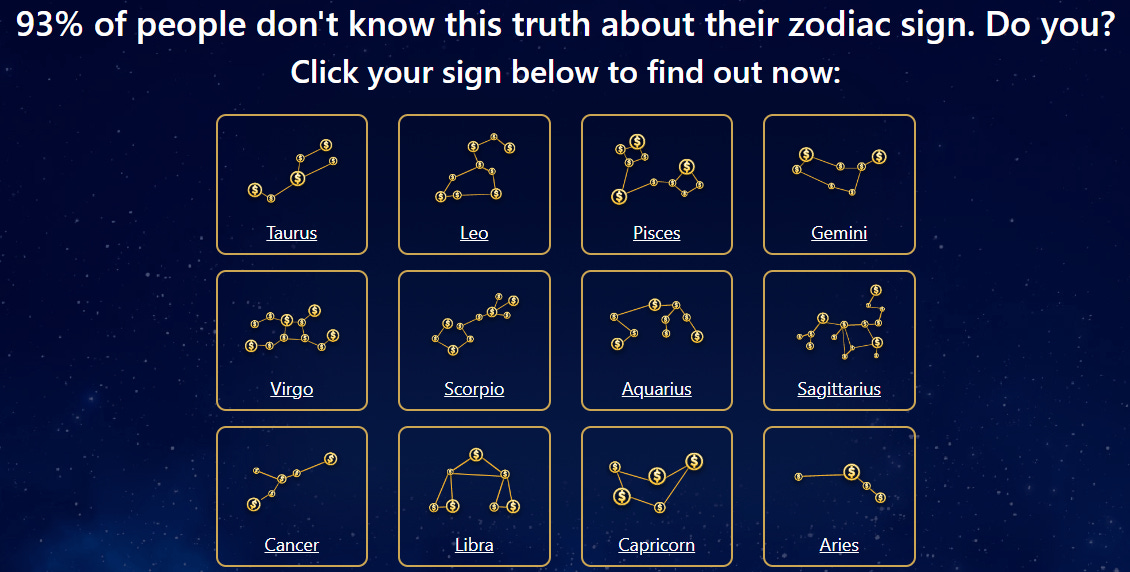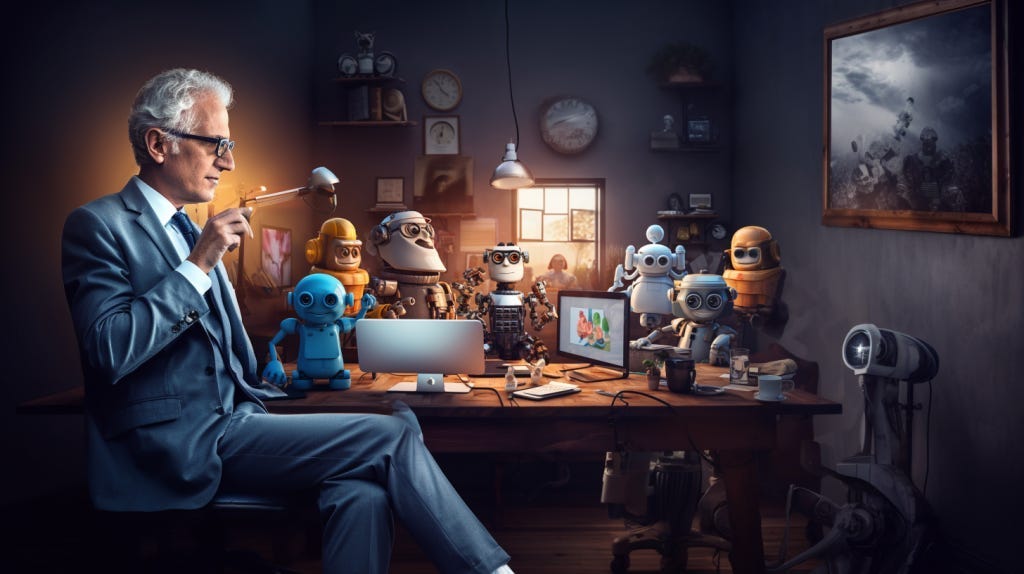Microsoft Upskills Developers, AI Boosts Patient Care, Cloud Giants' AI Copyright Limits
Microsoft Launches Skilling Initiative in India; AI Set to Improve Emergency Care While Cloud Giants Grapple With AI Copyright Issues
Microsoft Launches AI Skilling Program for 100,000 Indian Developers
- Microsoft launched month-long AI Odyssey program to skill 100,000 Indian developers
- Has two levels - learn Azure AI services, prove skills via assessments
- Complete levels to win Microsoft AI Tour VIP pass
- Aims to create AI-ready workforce to solve India's problems
- Open to all enthusiasts regardless of background
HEADLIME IS THE GO-TO GPT-3 TOOL FOR MARKETERS.
WRITESONIC IS ONE OF THE BEST ARTIFICIAL INTELLIGENCE-POWERED COPYWRITING GPT-3 TOOLS.
AI Set to Reduce Emergency Room Wait Times
- Emergency room delays worsening, cause patient anxiety and physician burnout
- AI-powered documentation saves doctors hours, focuses them on patients
- Streamlined via processing speeds impossible for humans
- Personalizes care by instantly compiling medical histories
- Major health systems already use AI in emergency departments
- Vision is patient-centered efficiency - precise, timely care
- Could relieve physician turnover while augmenting expertise
Cloud Giants' Limited AI Copyright Protections for Business Customers
- Amazon, Microsoft, Google offer AI services but narrow copyright protections
- Indemnities only cover models developed by or with cloud giants
- Don't cover third-party models hosted on platforms
- Safety filters provide some legal reassurance
- Can negotiate tailored contracts for more coverage
- Lawsuits target training data, early verdicts mixed
- Users must prove specific infringement
Microsoft Launches AI Skilling Program for 100,000 Indian Developers
Microsoft has announced the launch of AI Odyssey, a month-long program aimed at skilling 100,000 developers in India on the latest AI technologies and tools. The program has two levels - the first educates participants on building and deploying AI solutions using Azure services, while the second challenges them to prove their skills via online assessments to earn Microsoft Applied Skills credentials. Developers completing both levels also stand a chance to win VIP passes to the upcoming Microsoft AI Tour in Bangalore on February 8, where they can witness demonstrations of generative AI and network with experts. Through upskilling initiatives like AI Odyssey, Microsoft aims to create an AI-ready workforce in India that can build innovative solutions to solve real-world problems. The program is open to all AI enthusiasts regardless of prior experience. Microsoft MD Irina Ghose said AI is the future of innovation and India leads the way with its tech talent. The company hopes to empower developers to create meaningful AI applications that can drive India’s economy.
Harnessing Quantum AI to Unlock New Possibilities in Finance
Quantum AI, which combines artificial intelligence with quantum computing, offers exciting potential to enhance processes in the financial sector. Quantum computers can analyze massive datasets and perform complex simulations far faster than classical systems by leveraging principles like superposition and entanglement. This ability makes quantum AI ideally suited for financial modeling, which involves processing huge amounts of data to make projections. The computational power of quantum AI systems enables more accurate and timely insights. Additionally, quantum AI can improve risk management through real-time monitoring of financial data to detect anomalies and run simulations of different market conditions. This assists in identifying emerging risks and stress testing resilience to fluctuations. While technical limitations of quantum computing need addressing, quantum AI promises to bring greater efficiency, predictive capabilities, and accuracy to financial institutions. As research progresses, the future may see quantum machine learning algorithms unlock further innovations. Financial players should invest now in quantum AI capabilities to prepare for and harness its eventual transformational impact.
AI Set to Reduce Emergency Room Wait Times
Long emergency room delays continue worsening, exacerbated by factors like flu season and mental health crises. Patients endure anxiety while awaiting urgent care. Doctors face burnout handling overflowing ERs short-staffed. AI presents solutions. By extracting visit data into medical records real-time, AI-powered documentation saves doctors hours clerically. Staff freed focus more on patients not paperwork. Streamlining via processing speeds impossible for humans, AI also personalized care by instantly organizing full medical histories. Although unpredictable ER settings pose AI implementation challenges, major health systems already utilize such tech in emergency departments. AI's ultimate vision is patient-centered efficiency—eliminating unnecessary waits so each patient receives precise, timely care needed. Resistance expected, but benefits could relieve physician burnout and turnover. AI won’t replace expertise but augment it. The future looks bright for AI to finally erase the scourge of ER wait times.
Cloud Giants' Limited AI Copyright Protections for Business Customers
Amazon, Microsoft, and Google offer new AI services like chatbots to business customers, amidst generative AI's copyright issues. Though pledging legal defenses against intellectual property claims, their indemnity coverage proves narrow. Protection solely applies to models developed by or with the cloud giants' oversight, not all tools on their platforms. Safety filters that screen problematic AI content offer some reassurance, but companies avoid "unbounded" liability. Still, tailored negotiating remains an option. OpenAI and Meta's current lawsuits largely center on training data. So indemnities provide users uncertain on pending case timelines some security. However, fine print matters: Google and Microsoft differ on covering fine-tuned models. Suing individual users faces challenges too, given difficulties proving specific copyrighted content created the output. Still the tech giants' limited protections likely dissatisfy anxious adopters.




